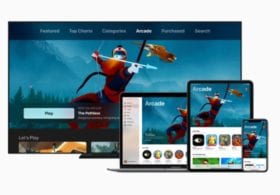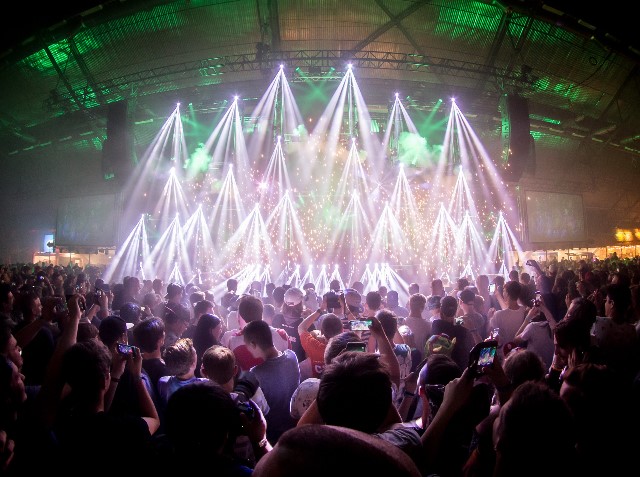VIEWERSHIP SNAPSHOT – MARCH
Source: Esports Charts
Psyonix is officially opening the Rocket League Esports Shop pilot program on April 16, offering users access to new Decals, Wheels, and Player Banners that represent teams that include: Cloud9, Dignitas, Evil Geniuses, G2 Esports, Ghost Gaming, mousesports, NRG Esports, Rogue, Splyce, TSM, Team Vitality. Featured items include two Decals per team (Octane and Dominus), one Player Banner per team, and a variety of Wheels per team. Items from the Esports Shop will require a new currency called Esports Tokens, with all organizations participating in the program receiving 30% of the revenue. Additionally, a portion of the revenue from the items sold in the Esports Shop will go to the players in North American and European RLCS League Play via a Prize Pool.
Gaming content producer PewDiePie, who ranks as YouTube’s most popular individual creator with more than 93 million subscribers, announced plans to back DLive, a live-streaming video service that “promises far better economic terms for creators than other major platforms,” according to Variety. The vlogger stated that he would use DLive exclusively to present weekly live-streams starting Sunday at 1p. “I’m excited to start live-streaming again regularly,” Kjellberg said in a statement. “DLive is great for me because I’m treated like a real partner just like all of the other streamers on their unique platform.”
The NBA 2K League and YouTube announced that the video platform will stream live broadcasts of NBA 2K League games and distribute highlights on the official NBA 2K League YouTube Channel throughout the current second season of the league. YouTube will now carry all NBA 2K League games this season, including more than 230 regular-season, tournament and NBA 2K League Playoff and Finals games combined.
Empress Intelligence’s 24/7 esports channel, ESR, locked in a deal to launch on OTT platform STIRR, owned by Sinclair Broadcast Group. The platform will now host ESR’s blend of esports content, including tournaments, live events, match highlights, docuseries, reality shows, and talk shows. ESR chief executive Wendy Wang said: “Our goal is to share the growing excitement for esports to a broader audience, reaching across the entire range of gamers, fans, and future fans with the best esports content and gaming entertainment.”
Matcherino, a provider of prize pool management and crowdfunding tools for esports, entered into a strategic partnership with GameStop to “facilitate the growth of esports tournaments and further fuel the passion of the esports community.” The Matcherino platform will be leveraged to drive GameStop online tournaments by including features such as player registration, matchmaking, payouts and crowdfunding. GameStop will also utilize “Sponsor Quests,” Matcherino’s exclusive esports advertising platform to help fund and grow independent, amateur and grassroots.
POWER PLAYERS – DreamHack’s Anna Nordlander
Expertise in the art of the experience has never had a higher premium, as venues and tournament producers continue to ramp up engagement tactics that sometimes need to last for weeks. Meanwhile, DreamHack, founded in 1994 as a BYOC LAN party, continues to evangelize the digital festival, featuring multiple esports competitions, live music, exhibitions, creative competitions, LAN party, cosplay and more, with the company reporting over 310,000 visitors in 2018. Cynopsis Esports asked Anna Nordlander, COO of DreamHack about the company’s goals moving forward.
Nordlander on lessons learned: Overall the lessons for us are primarily about continuing to evolve and offer our visitors the best experience possible. There are two routes here. For our standalone esports events (like DreamHack Masters and the just completed CORSAIR DreamLeague Dota 2 Major we hosted in Stockholm), we’re focusing on enhancing the visitor experience so it’s not just about sitting and watching gameplay. We’re trying to make the show a lot more engaging by implementing more interactivity and participation. This is primarily done through both the DreamHack App we have developed ourselves, having an onstage host interacting just with the audience on-site, as well as developing new features in our broadcast for both the on-site and online viewers. For our festival events, we are primarily focusing on branching out even further to reach new audiences and new communities. Good examples of this would be our expansion into mobile gaming with the DreamHack Mobile Series, and themed music nights, like the Metal Night we’re hosting at DreamHack Dallas featuring Trivium.
On 2019 goals: Our goals are simply to continue growing both our event attendance and online viewership. We have really established ourselves in the US now, and for 2019 we are adding two new events in Brazil and The Netherlands, and aim to start strong in both those regions and carry that momentum forward.
On reinvention: We feel we’re constantly in a process of reviewing and re-inventing ourselves, we are trying to make sure that our festival events are always featuring the most interesting content for gaming and esports fans. Our focus is to branching out into more diverse activities areas that are all connected by the umbrella of gaming, meaning our event visitors will have seen a bigger focus on art, indie games, collegiate and more broad genres of gaming than just PC gaming (eg, mobile, console, VR).
On key activations: With Com Hem we set a new world record for DreamHack Summer 2018. Com Hem delivered a connection to DreamHack with a speed of 1.6 terabits per second. The record got established by Guinness World Records as the fastest Internet connection ever used simultaneously by a larger group of people.
We also had a great and a bit unconventional activation with Fortum, one of the largest electricity suppliers in Sweden, during DreamHack Masters in Stockholm 2018. To catch the audience attention we faked a power outage during the opening ceremony when the arena was full of people and then played a video showing the importance of electricity within esports.
On new territories: There is a huge amount of interest globally that we see for festival events in gaming and esports, it’s hard to pinpoint a region specifically but we’re looking closely at all of Asia, especially China, as well as other markets a bit closer to home like California, and the UK.
Allied Esports is set to rebrand its European arm, ELC Gaming, which will now operate under the global company’s name and continue business as Allied Esports in Europe. The move follows a September 2018 acquisition in which Allied Esports, which had a majority stake in ELC Gaming, appropriated 100-percent control of the European company. ELC Gaming’s social platforms will be integrated into Allied Esports’ existing channels.
Daybreak Game Company is back in the saddle to oversee the development of Z1 Battle Royale with NantG Mobile announcing that it was relinquishing oversight of the facelift but noting that there were “many challenges that preclude [it] from long-term success.” “In the past few months, NantG Mobile has been working feverishly on rebranding Z1 Battle Royale and reverting the game back to its glory days. We’ve since made countless changes to Z1BR in an effort to recapture the moments that once made the game vastly popular and truly unique and special to many of you,” the statement began.
Gaming site Kotaku is under new ownership with private equity firm Great Hill Partners acquiring the Gizmodo Media Group from Univision Communications in a move that also include publications such as Deadspin, Gizmodo, Jezebel, and others as well as The Onion. The new company will now be known as G/O Media and run by James Spanfeller.
Luminosity Gaming named Mark Thomas as Vice President, Head of Marketing for the team. Thomas joins the organization following a run on CBC’s Sports Partnerships team and will oversee efforts to grow the Luminosity brand globally, while building out its brand partnerships team.














